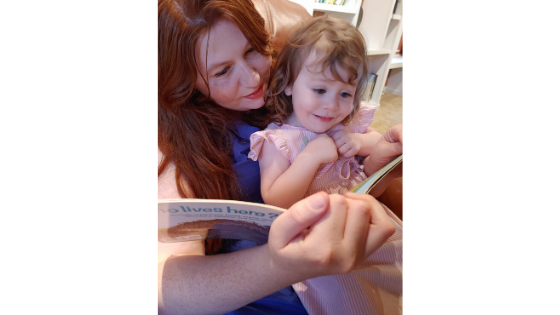10 Ways to Make Sure YOUR CHILD is not experiencing a Digital Childhood

What is digital childhood?
Digital childhood gives the child experiences through a screen without real human interaction, physical exertion, and true emotional experiences.
While I believe the effects of experiencing childhood through a screen are sad enough the real tragedy is in what children are not experiencing…
What Children Really Need:
- Undivided parental attention
- Responsibilities
- Boundaries
- Hours in outdoor life
- Chores
- Nourishing meals and conversations
- Routines
- Security
- Restful sleep
- Unscheduled afternoons to create and imagine.
Instead, children are being given the complete opposite of what they really need. Often children are experiencing lives without responsibility, lack of sleep, very little time outdoors, sleep is scarce, and schedules are jammed full with NO room for imaginary play.

Undivided Parental Attention:
Our most important work is not our jobs, our social status, social media…our most important work is our children. Unfortunately, most children today are in constant competition with our … cell phones.
We start our day with our phones in our hands and close the day with them next to our beds.
Notifications signal us and bring us into the digital realm and out of the moments we are experiencing with our children.
Life is all about moments.
Phones are a very useful tool, and I believe there is a place for them but they should never steal away time spent with those we love. In that case, our phones are silently robbing us of our own joy and life.
Responsibilities and Chores
Did you know doing chores at home leads to children to future success?
According to a recent Harvard study children that did chores as children were much more successful in their future professional life.
Children are capable of helping with so much more then we give them credit for.
Shared responsibilities boost a child’s confidence and teach them to live productive lives instead of living as consumers.
A child as young as 2 can begin making their bed/crib and begin putting away toys.
Boundaries
Setting boundaries in your home will help your children take responsibility for their own actions and give them a sense of ownership in their lives.
Children are naturally inclined to impulsive, poor decisions so setting up boundaries is necessary and needed. These boundaries help a child feel secure and teach children to control their impulses.
Hours in Outdoor Life
Most children spend less time outside than the average prisoner.
How sad.
Digital childhood brings children away from the flowers, rocks, ants, and natural world on onto a couch.
Experiencing nature through a screen will never replace the experience you have with your 5 senses.
Children may HEAR and SEE a waterfall on a screen but they cannot FEEL or SMELL water.
Children should learn with their 5 senses.
This website features the name “Charlotte Mason” for a reason. This English educator taught in the 1800s and changed the way many children were learning. Her work still lives on today.
“…my object is to show that the chief function of the child–his business in the world during the first six or seven years of his life–is to find out all he can, about whatever comes under his notice, by means of his five senses…”
― Charlotte Mason
Her teachings are still very relevant today.
As a homeschool mom, nature has taught my children MUCH more than I could ever pen down.
Sadly, nature has this constant competition, too.
Last year I was with a group of children some of my own and some other children.
I asked if the children wanted to play “Tag” or “Red Rover”.
Some of the younger ones wanted to play but the children 8 and over said they would rather be on their phones.
Of course, I didn’t allow it but still, the competition was there.

Nourishing Meals and Conversations
What happened to family meals? Research shows in the past 20 years family dinners have declined rapidly. In addition, cooking at home has become much more scarce.
Children that eat at home learn valuable life skills. Etiquette, meal prep, clean up, self-control, and much more are taught through family meals.
While it is well known home-cooked meals are much healthier, conversations at the dinner table are equally important.
No app, game, or device should ever take the place of uninterrupted family mealtimes with rich conversation. Talk about the events of the day, reconnect, plan out the evening together, tell stories… Children need this kind of attention.
Routines and Security
Just as nature has a Rhythmic pattern, children thrive with patterns, too.
Incorporating daily structure and routine to your home will instantly help your child feel more secure.
If you feel LOST in this area, start with a simple morning routine.
Build your day around meals, naps ( for younger children), walks, and playtime.
Restful Sleep
- Between ages 1 and 2
- Toddlers typically need 11 to 14 hours of sleep per day. (Between nighttime sleep and naps)
- Between ages three and five
- Preschool-age children usually need 10 to 13 hours of sleep per day. (Naps are still helpful at this age)
- Between ages six and 13
- This age group, kids typically require nine to 11 hours of nighttime sleep per night.
According to HOAG MEDICAL GROUP….
Many studies have found a strong relationship between average hours of sleep and technology use before bedtime. “Children who watched TV or played video games at bedtime were recorded to get 30 minutes less of sleep than those who steered clear of screens for at least an hour before bed. And children who used a computer at bedtime had approximately 60 minutes less sleep than those who did not.” hoag Medical Group
Sleep is an essential KEY to wellness and growth yet even sleep has this competition.
Unscheduled Afternoons AND over-scheduling
As a society, we are way. too. busy.
Children need time to be bored, create, and imagine. I am an advocate for empty afternoons.
Don’t get me wrong, I have children in music lessons and extracurricular activities HOWEVER I am very careful with our time.
For our family, we must be home at least 4 afternoons per week. I won’t agree to any activity that will take away that time.
Children need time with raw materials, boredom, and nowhere to go.
“Imagination is more important than knowledge. For knowledge is limited to all we now know and understand, while imagination embraces the entire world, and all there ever will be to know and understand.” Albert Einstein

There is Hope!
Years ago I had a light bulb moment in my life. I was busy with my part-time job and trying to live the “American Dream”.
I realized the “American Dream” really isn’t a dream at all. My children were spending hours away from their home, spending summer in camps, and I was busy trying to earn money to pay for it all.
One summer we made a dramatic change ( 10 years ago). We started homeschooling our children ( gasp), we put away video games, implemented Charlotte Mason’s philosophies for raising and educating children, and cleared our schedule for more free time.
Life changed for the better…and a HUGE burden was lifted from my shoulders.
As I implemented this unplugged childhood…things starting changing for the better. My children started to LOVE to learn. We experienced life together. We studied side by side. I had just as many “A-ha” moments as they did.
Life isn’t perfect, but it wasn’t what it was.
10 years later, I have no regrets. My children have and are
( I have 6 at home) experiencing a non-digital childhood.

Join our upcoming class with information on managing your home through:
- Teaching (and training) children to do chores
- Providing nourishing meals
- Early childhood tools for imagination
- Household management and much more!






